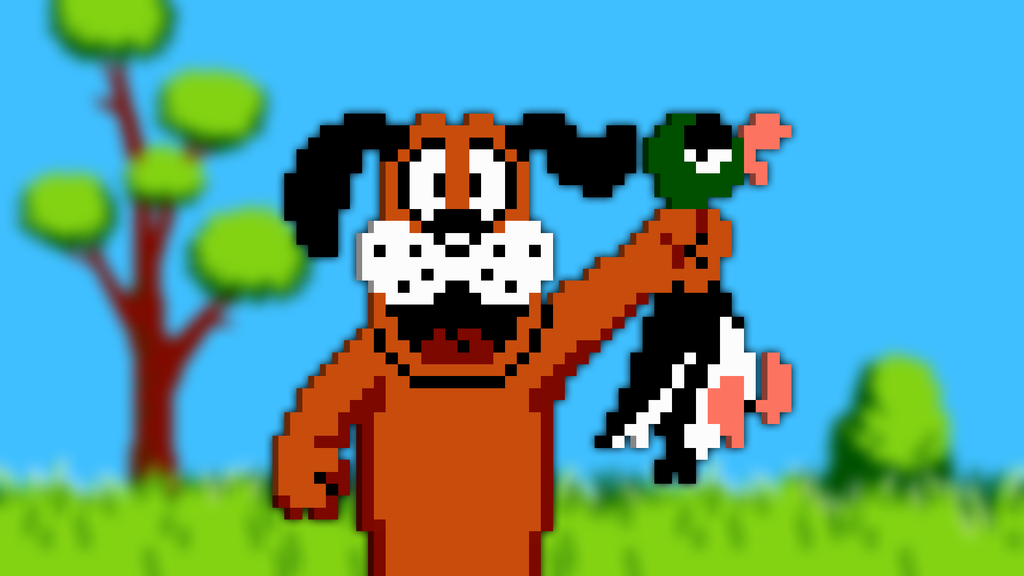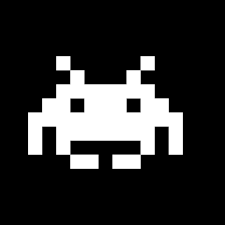
Game information:
The game Duck Hunt was released in Japan in 1984 and then in US in 1985. It was developed and published by Nintendo. It was played on Nintendo Entertainment System (NES). It features flying ducks and a laughing dog. Game sold over 28 million copies. The dog and the duck from the game was later included as the character in the Super Smash Bros along with the design of the game setting becoming a stage in Super Smash Bros as well.
Game play:
You get three shots to shoot a flying duck. The game uses a zapper lighting gun to shoot the flying duck. The points a player can win from shooting each duck range from 500 to 3000 points. The points differ based on the color of the duck and the round/level the player is on. The goal of each round is to shoot at least the minimum number of ducks, which increases with the level of difficulty. If the player shoots all of the ducks, he or she is rewarded with Perfect Bonus points which can range from 10000 to 30000 points. When a player misses, the dog in the game laughs at the player. The game is over when the player does not shoot the minimum number of ducks for the round. The game seems to stop functioning after Round 99. Players and game sites have reported many glitches at Round 0 and that the game goes back to Round 1 if one ever passed Round 0.
There are three modes to the game: Mode 1: shooting 1 duck at a time; Mode 2: shooting 2 ducks at a time; Mode 3: shooting clay disks instead of ducks.
Game history:
Duck Hunt on the NES was originally a game called “Beam Gun: Duck Hunt” released in 1976. It was played with a battery powered light gun with a projector projecting the flying ducks on the wall. In this version, there was no laughing dog. In the early 1970s, Nintendo was in the midst of making a simulation game of clay pigeon shooting. In 1973, they have succeeded with a Laser Clay Shooting System (LCSS). However, the success was not able to stretch far when Nintendo was affected immensely by the oil crisis of 1973. They faced a 5 billion yen debt (~$64million) which limited their ability to expand the game system. In the midst of paying off the debt (which took seven years), Nintendo’s Gunpei Yukoi transformed the system into the Duck Hunt miniature home unit. The Duck Hunt that we know today was released in 1984 in Japan on the Nintendo Entertainment System on one of the first game cartridges for the system. It was then released in the US in 1985.
Context of when the game was created & what that means:
The 1980s seemed like a time shaped by ambition as Japan’s economy was rising and standard of living was improving after the devastation caused by World War II. Not only were the Japanese citizens financially able to buy better consumer goods but the country was also able to export them as well. One can see how ambition affected the Japanese society with the change in the social norms. As the country seemed to thrive, the social norms began to change as well with a decrease in birth rate and a rise of age in first marriage. This seems to reflect how the people began to prioritize themselves and was finally able to enjoy a bit of leisure time. Perhaps the increase in leisure allowed the success of NES and Duck Hunt. As people are able to focus more on enjoying and improving themselves rather than supporting their family let alone themselves, entertainment system becomes more popular.
Resources:
http://nintendo.wikia.com/wiki/Duck_Hunt
https://en.wikipedia.org/wiki/Duck_Hunt
https://kotaku.com/the-gun-game-that-nearly-broke-nintendo-5794640
Budd, Darlene. “Japan.” Public Opinion and Polling Around the World: A Historical Encyclopedia, edited by John Gray Geer, ABC-CLIO, 1st edition, 2004. Credo Reference, https://ezproxy.library.nyu.edu/login?url=https://search.credoreference.com/content/entry/abcopinion/japan/0?institutionId=577. Accessed 23 Feb 2018.
